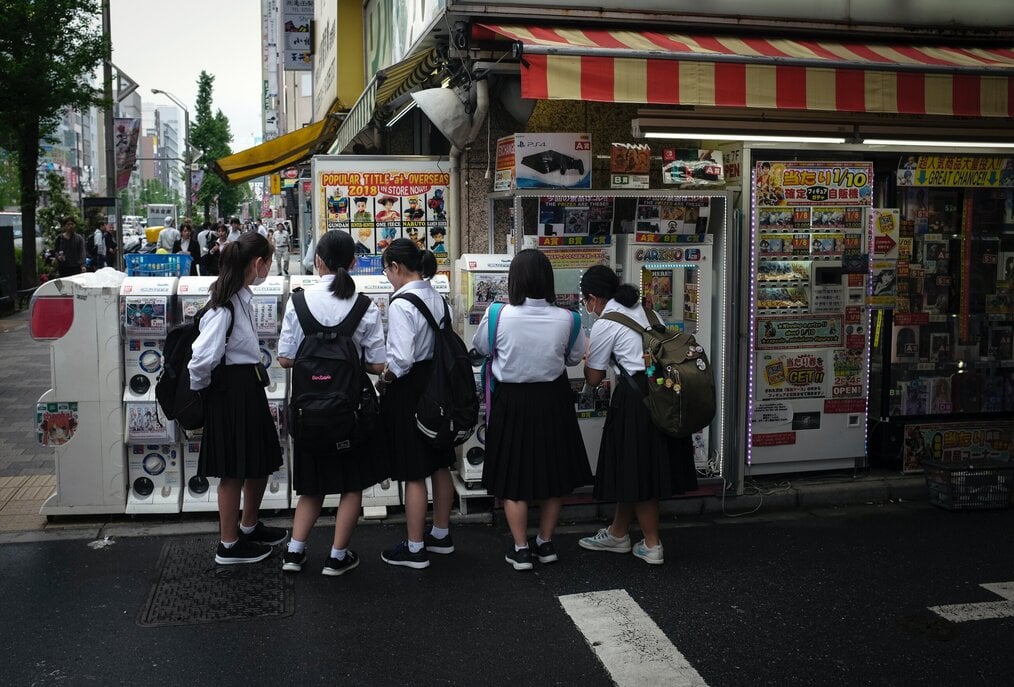The Pros and Cons of Teaching English in Japan
Compare the pros and cons of teaching English in Japan to help you decide if this fantastic country might be right for you.
Key Takeaways 🔑
- English teachers are both in demand and well-respected in Japan.
- Teachers in Japan enjoy excellent pay and benefits.
- Teaching in Japan presents unique challenges like long workdays and a work culture that may be different from what you're used to.
Teaching English in Japan can be an extremely rewarding experience if you accept the challenge and go into it with an open mind and willingness to learn. You’ll experience firsthand the country’s beauty and uniqueness, and learn a lot about Japanese culture, the work environment, your students, and yourself in the process! You’ll also learn what it is to be both a teacher and a student.
If you’re on the fence and wondering if teaching English in Japan is worth it, thoughtfully consider this list of pros and cons to see if this potential career is right for you!
✅ Pro: Good pay and great benefits
Although pay varies by the type of school setting and location, starting English teacher salaries in Japan usually fall somewhere between $20-30K USD a year. Even though it may not seem like a lot by US standards, if you live and work outside of major city centers (which you likely will) it's incredibly livable.
Many employers cover housing and may include other perks like transport passes, cell phone SIM cards, and free lunch at school. Not paying for accommodation means frugal teachers can potentially save up to $1,000 USD a month with proper budgeting.
In terms of growth, there isn't a corporate ladder to climb, but there are certainly opportunities for higher salaries and bonuses the longer you work for one company or school.
❌ Con: Long workdays
Depending on the kind of school environment you teach in, you may have to work long hours from 9 am to 10 pm for students coming after a regular work or school day. This may limit you from creating a social life outside of work.
Furthermore, work isn’t always over when you leave the classroom. In Japanese culture, it’s common to go out with colleagues for a drink or karaoke. Not every night or week, but these outings help keep the harmony among the group. You may also be required to work some weekends and at school events.
✅ Pro: Collaborative classroom environment

If you’re willing to listen and observe, your students will give you lesson ideas. By listening to conversations they have with each other, observing how they interact, and paying attention to what they write about in their assignments, you can incorporate their interests into lesson plans. Youth culture in Japan is unique and a perfect opportunity to pique your students' interest in talking about these trends in English.
This can save you time or even get the creative juices flowing when you’re stuck on ideas for creating lesson plans that will engage students, helping them learn and participate in a dynamic atmosphere. You may think you're there to inspire the students, but they will inspire you, too!
Read more: How to Create the Perfect ESL Lesson Plan
❌ Con: A different work culture
Life as a teacher in Japan is just different, and that can take some time for you to adjust to. For example, after you’ve finished a lesson and ask your students if they have questions or feedback, it’s common for every student to say they understand, even if they don’t.
However, chances are they actually don’t understand the material you’ve covered, and they’ll save their questions for the end of class when they can ask you in private. This habit is also to save face so as not to appear unintelligent in front of their peers.
Keep this in mind while you’re teaching. It's important to engage as many students as possible in your lesson activities to gauge understanding and ensure that nobody gets left behind.
✅ Pro: A meaningful cultural exchange
Though you’ve signed up to teach English, regardless of your experience, you are going to learn a lot about your own language through the questions that students ask you. Some will leave you stumped, and others will amaze you. It will encourage you to teach beyond what’s written in textbooks and delve into why we speak the way we do, why we change the way we talk depending on the context, etc.
In turn, students will learn about Japanese from the questions you ask them. You’ll also be able to pick up proper Japanese expressions from your colleagues and casual slang from your students. It’s a very unique exchange and provides insight on how to communicate effectively when there’s a robust language barrier in place. It will force you to get creative and learn how to simplify your own speech and expressions.
❌ Con: Homesickness
At times, living and working in Japan can make you feel isolated and homesick. This is especially true if you don’t speak or understand Japanese and are living in a small rural town with few other teachers or expats around. Being alone in a new country with little social support can be tough but it is possible to push through and make the best of it.
Read more: Top Ways to Keep in Touch with Friends and Family While Overseas
✅ Pro: Efficient transportation

Nearly every corner of Japan is accessible by train. The areas that aren’t as walkable can be best explored by bicycle. From local trains to bullet trains, Japan has made it so easy to explore. It’s also a nation that depends on things running on time, which means you can usually expect to get to work in a timely fashion. Some schools may even reimburse your transportation costs.
❌ Con: Long commutes
If you’re working in the public school system, you may spend a lot of time on trains traveling between 3-4 schools a day. You may be taking 30-45 minute long train rides just to teach for an hour at one school, or you may be assigned to teach at a different school every day.
Your commute time will depend on where you live. While the transportation experience in Japan won’t be unbearable, hours of teaching plus long commutes can certainly be tiring. This is something to consider when picking where in Japan you want to teach, especially if you think you’ll end up wanting to live in Japan long term.
✅ Pro: Simple, healthy, and delicious food

Many of the locals will assure you that Japan’s food is simple, healthy, and safe to eat. Japan’s loyalty to its craft, especially when it comes to food, is incomparable. People spend their whole lives dedicated to perfecting their specialty foods, trying to find the right balance of flavors and textures, or putting their own spin on it.
Soup broth isn’t too bitter, ramen isn’t too spicy unless requested, and many of their traditional or gourmet sweets are not overloaded with sugar. Just think of Japan as the Goldilocks of food meccas. Flavors don’t swing too much one way or another -- the flavors are just right.
You should teach abroad in Japan if…
Deciding whether or not you should teach English in Japan is a highly personal decision. However, it might be right for you if the following resonates with your goals:
- You’re serious about growing your career as an English teaching professional
- You don’t mind long workdays or potentially lengthy commutes
- You’re interested in immersing yourself in Japanese culture and language
- You want a good salary with benefits and opportunities to save
- You aren’t afraid of a challenge!
So, is teaching in Japan for you? If your answer is a resounding yes, check out our list of best teaching programs in Japan to get started today!
Start your Japan adventure!
Your quality of life and career longevity in Japan will depend on how much effort you put into your work, how much you enjoy it, and how well you communicate your concerns and needs. Working and living in a different country doesn't come without obstacles and frustrations, but once you learn to navigate the waters, it has the potential to be one of the most enriching experiences.
There is an expression in Japanese called Ganbatte, which is the equivalent of "do your best" or "you can do it." Should you choose to go teach English in Japan, ganbatte and enjoy!
